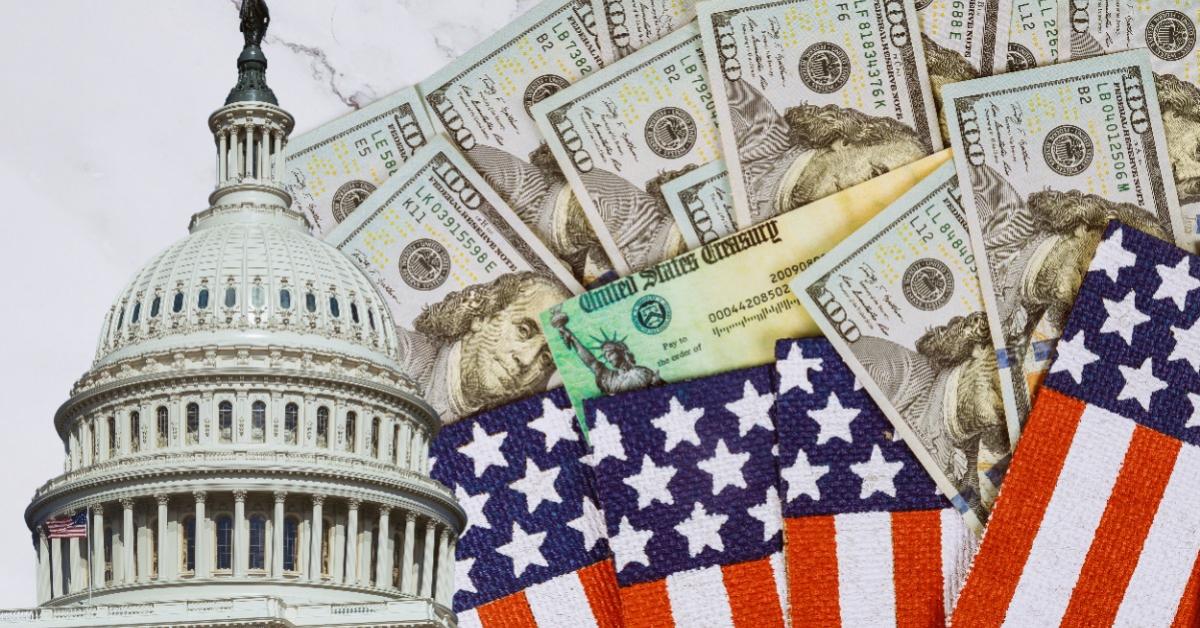
On April 6, 2023, President Joe Biden’s Twitter account sent the following message: “Trickle-down economics doesn’t work.” Trickle-down economics is a phrase that is often thrown around negatively to ridicule those who believe that the free-market system is the best way to regulate the economy. “Trickle-down theory” was never coined by economists, and the term has two possible origins, both of which were meant to discredit those who wanted less government involvement in the economy. It’s an ironic term as well because those who shout that “trickle-down economics doesn’t work” seem to be zealots in the belief that higher taxes paid to the government on all levels will trickle down and eventually benefit everyone.
What Is Trickle-Down Economics?
Because the term “trickle-down” was created as ridicule, its definition came after its first use. According to Investopedia, “trickle-down” is the theory that tax breaks for corporations and the wealthy will trickle down and eventually benefit everyone. In other words, private individuals and companies keeping more of what is theirs is more of a benefit to society than being heavily taxed. Those who are against this concept of “trickle-down” often believe that wealth is concentrated in too few hands where it becomes unused and stagnant at the disadvantage to many who do not have access to it through welfare programs.
How Washington Redistributes Current Tax Money
“Fair share” has become one of the most loaded terms in recent American politics where it has no precise meaning as a policy point and is only meant to provoke emotional reactions to give the government more power to tax (other people, not you). Because “trickle-down” is a phrase meant to discredit those who oppose big government, it would be best to see how big government has been managing the resources that are currently under their control.
As of now, the federal government has a debt of over $31 trillion, which is about 150 percent of the total US gross domestic product in 2021. The debt limit has been reached and congressional approval is needed to raise it again. The Republican-led House of Representatives leadership has submitted a plan to raise the limit with restrictions to slow down the debt spiral while the Democrat president refuses to meet with them and demands the limit be raised without restrictions.
Spending is out of control, and if everyone was taxed at 100 percent for a year, the debt would remain in the trillions. This is unsustainable, and any talk of raising or expanding taxes to expand government is doomed to fail in practice.
At the same time, five of the ten richest counties in America are suburbs of Washington, DC, where the biggest employer is the federal government. In the ten states with the lowest net federal funding per resident, the people actually pay in more than they get back. It is safe to say that a huge chunk of the money coming to Washington is staying in Washington.
Current Redistribution Proposals
Two areas of American life where the federal government has stepped in to regulate for fairness and opportunity with poor results are housing and student loans. Government-guaranteed student loans have given more people the opportunity to go to college which has increased demand and, with unlimited tuition money available for borrowing, increased the price dramatically. President Biden wants to cancel $400 billion of the current loans which would then make the general taxpayer on the hook for them along with the other $31 trillion of debt, freeing the borrowers of the loan they agreed to take, used, and were supposed to pay back.
Proponents of this policy point out that these borrowers can use the money they would have spent paying back their loans on other things in the economy, like houses. In other words, the effects of this policy will trickle down from those whose debts were wiped out to the rest of us.
There is a current proposal to expand home loans to people with poor credit scores and low savings for down payments. This would be paid for by a fee that would be added to new traditional mortgages where the borrowers have large down payments and good credit scores. In other words, the heavy hand of the Biden administration will use its powers to take from those it deems more fortunate and have it trickle down to the less fortunate.
Government Redistribution Is Trickle-Down
Both policy proposals have a lot of legitimate arguments against them ranging from highly inflationary effects for loan forgiveness to the potential moral hazards for both. But they also have the threat of force and authority to take from some to give to others. They contain the belief that central planners can create more fairness in life by taking large amounts of wealth, concentrating it in the capital, and then allowing it to trickle down to the rest of America.





